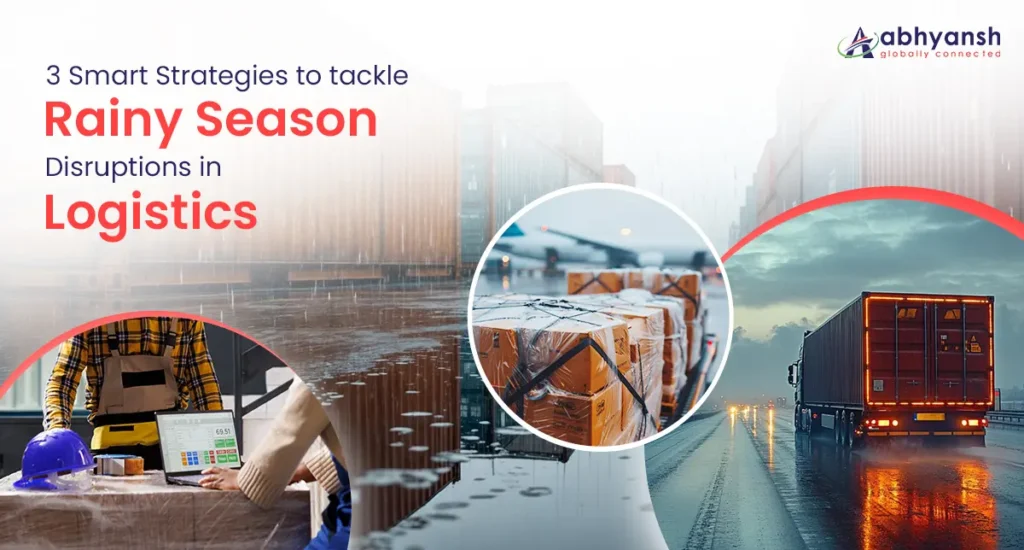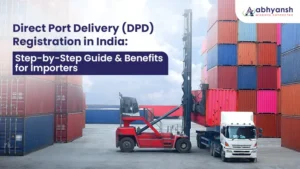The rainy season is both a blessing and a logistical challenge. While it replenishes resources and cools temperatures, it also brings along delays, roadblocks, and unpredictable conditions that can severely disrupt the flow of goods. For logistics and supply chain professionals, the monsoon demands preparedness, adaptability, and proactive thinking.
From flooded highways to port slowdowns, every segment of the supply chain is impacted in some way. So, how can logistics companies and shippers stay ahead of the storm—literally?
Here are 3 smart strategies to keep your operations moving even when the skies don’t cooperate:
1. Strengthen Risk Visibility with Real-Time Tech Integration
One of the biggest reasons delays escalate during the rainy season is lack of real-time visibility. Rain-related disruptions like road closures, waterlogging, or vehicle breakdowns often come with little warning. Companies that still rely on manual updates or paper-based tracking are the first to feel the impact.
What You Can Do:
- Implement GPS and TMS Tools: Use Transport Management Systems (TMS) integrated with GPS to track vehicle locations and delivery statuses in real time. This allows for immediate rerouting in case of road blockages or weather alerts.
- Leverage AI-Powered Forecasting: Predictive analytics tools can now assess weather patterns and suggest preventive action days in advance. This could include rescheduling pick-ups or switching modes of transport.
- Create a Command Center: A centralized control tower to monitor operations during the monsoon season can act as your mission-critical hub for crisis management and rapid response.
Outcome: Better control, reduced delivery uncertainties, and enhanced customer communication.
2. Diversify Transport Routes and Modes
Putting all your shipments on a single highway or relying solely on road transport during the rainy season is like placing all your bets on one card. To survive monsoon disruptions, logistics companies must diversify and plan alternates.
What You Can Do:
- Multimodal Transport: Combine road with rail, sea, or even air depending on the urgency and geography. Rail transport, for example, is often more resilient to flood-affected roads.
- Regional Warehousing: Position inventory closer to key markets using decentralized warehouses, so final-mile deliveries can still take place without long hauls through rain-hit regions.
- Local Intelligence: Work closely with local partners who understand ground realities—especially in remote areas. They can offer workarounds when official routes are shut down.
Outcome: Flexibility in operations and uninterrupted delivery even when primary routes are compromised.
3. Weather-Proof Packaging and Contingency Planning
Rain doesn’t just affect the movement of goods—it can damage the goods themselves. Especially for perishables, electronics, or paper-based products, even short exposure to moisture can lead to significant losses.
What You Can Do:
-
- Upgrade Packaging Standards: Use waterproof materials, shrink-wrapping, and moisture-resistant pallets for rain-sensitive cargo. Ensure that warehouses are sealed and leak-proof
- Insurance and Documentation: Review your cargo insurance coverage during the monsoon. Documenting all shipments carefully can also help in faster claim settlements if needed.
- Develop a Monsoon SOP (Standard Operating Procedure): Outline protocols for drivers, warehouse teams, and customer service to follow during monsoon emergencies—from stranded vehicles to inventory damage response.
Outcome: Reduced cargo damage, fewer customer complaints, and more resilient operations.
Final Thoughts
The monsoon is inevitable but chaos isn’t. With the right systems, partnerships, and foresight, logistics companies can not only mitigate rainy season risks but even use the opportunity to showcase operational excellence.
In a competitive industry where reliability matters most, rain-proofing your logistics is not just smart, it’s essential.







